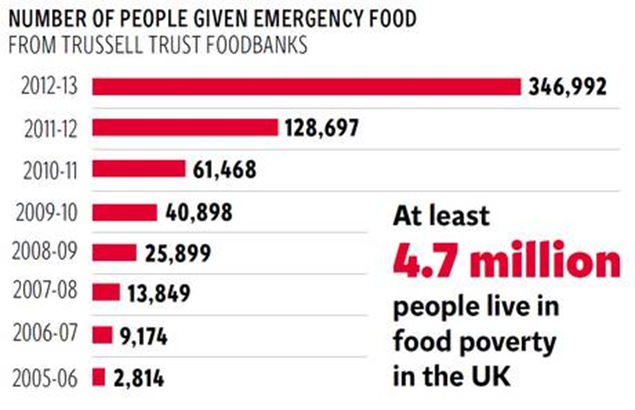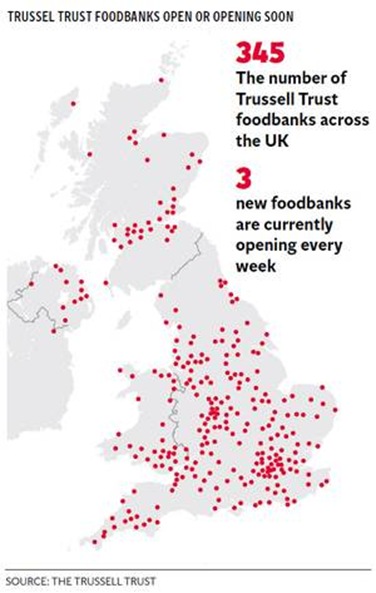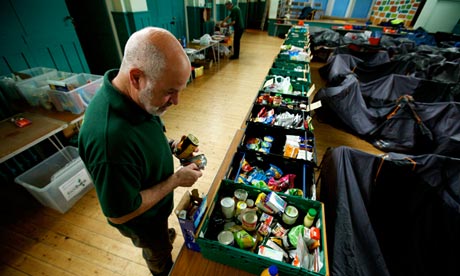Daily Stormer
April 17, 2014

One of the results of living in a multi-cultural society is that nobody cares about anyone else anymore.
The largest study ever done on Diversity proved this, it found that people trusted their neighbours less, gave less to charity and were less likely to care about the community they are living in. If Britain was an ethno-state, there is no way the people would ever allow anyone to be in such poverty that they could not afford to buy food.
From the Independent:
The shocking scale of food poverty in Britain is exposed today by new figures showing record numbers of people are reliant on handouts because of punitive benefits sanctions.
More than 900,000 people were given emergency food in the past year, an increase of 163 per cent, according to figures from the Trussell Trust, the biggest food bank charity. The explosion in demand has coincided with an increase in those seeking help following a benefit sanction.
A coalition of anti-poverty charities, including the Trussell Trust, claims the figures show that the UK is breaching international law by violating the human right to food.
Separately, 600 church leaders from all major denominations, including 36 Anglican bishops, are writing to the Government today, calling for urgent action to address hunger among the poor.

The letter will say that Lent has been “a time of sorrowful reflection” on the huge rise of those using food banks. It marks the biggest Christian intervention on UK food poverty in modern times.
In its most hard-hitting report to date, the Trussell Trust said the Government’s use of sanctions was “increasingly harsh” and that half of those referred to food banks in 2013-14 were as a result of benefit delays or changes. Eight out of 10 of their food banks saw more cases relating to benefit sanctions over the past year. Tougher punishments for those on jobseeker’s allowance were introduced by the Coalition last October, raising the minimum sanction from one to four weeks. Benefits can now be stopped for up to three years.
In total, 913,138 people received three days’ emergency food from Trussell Trust food banks in 2013-14, compared with 346,992 in 2012-13.
Static incomes, rising living costs, low pay, under-employment and other problems related to welfare reform also contributed to the increased demand, the charity said.
The Trussell Trust chairman, Chris Mould, said the figures were “ shocking in 21st century Britain”. He added: “Perhaps most worrying of all, this figure is just the tip of the iceberg of UK food poverty. It doesn’t include those helped by other emergency food providers, those living in towns where there is no food bank, people who are too ashamed to seek help or the large number of people who are only just coping by eating less and buying cheap food.”

